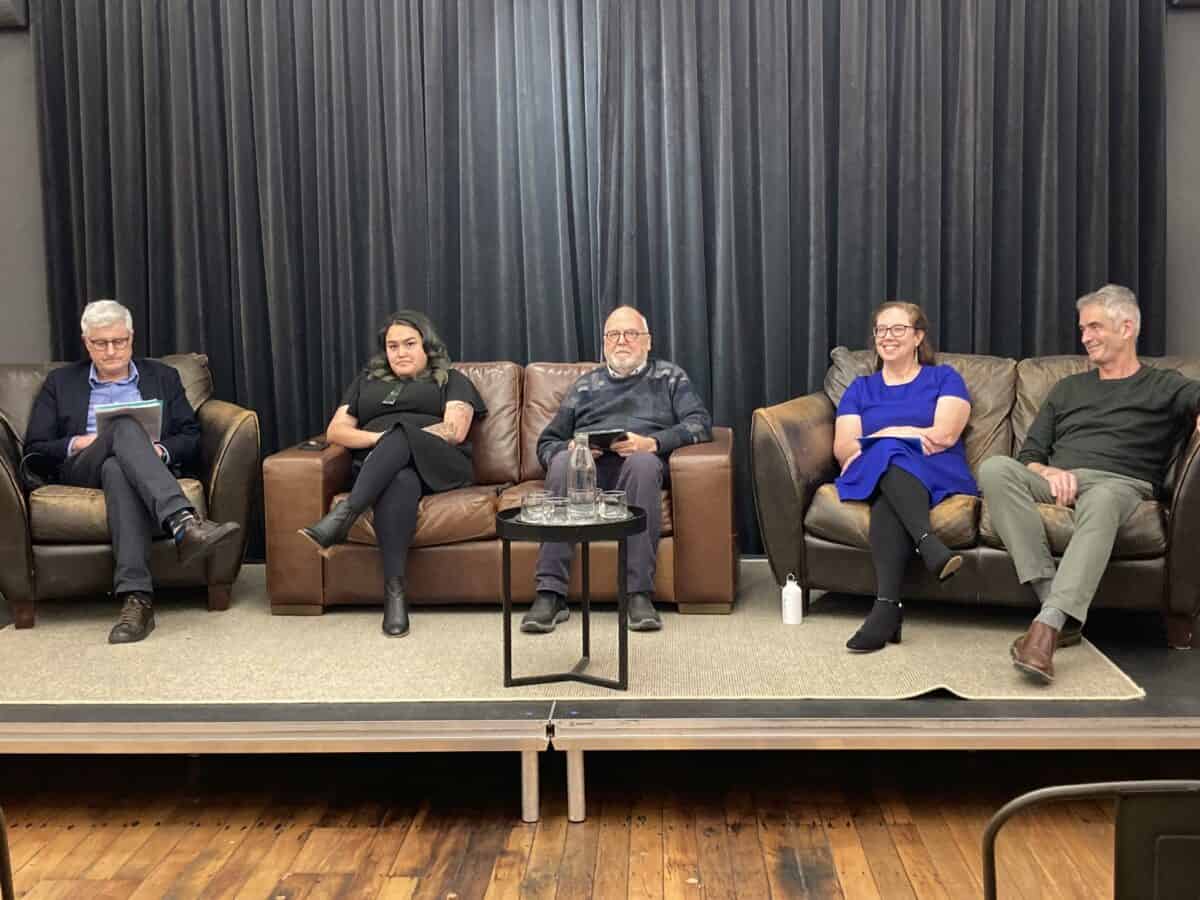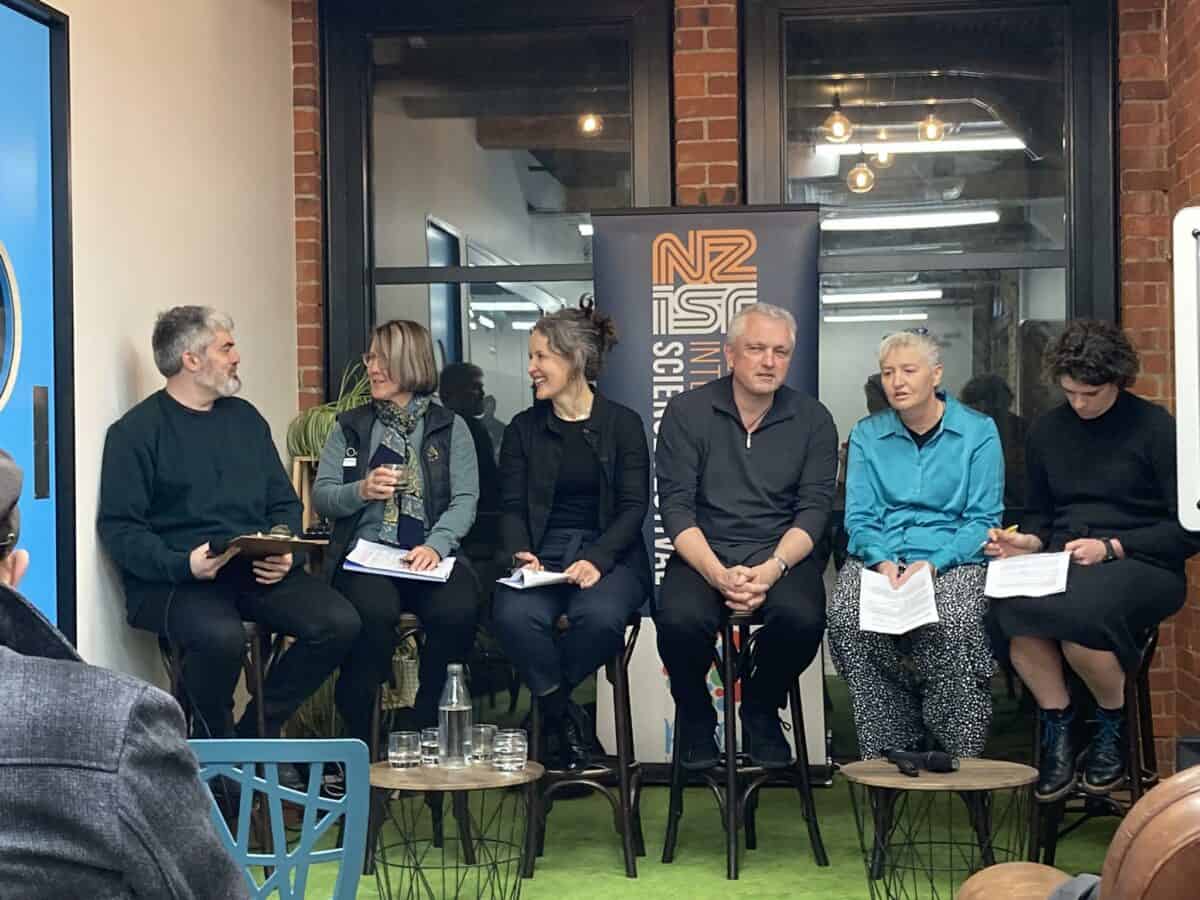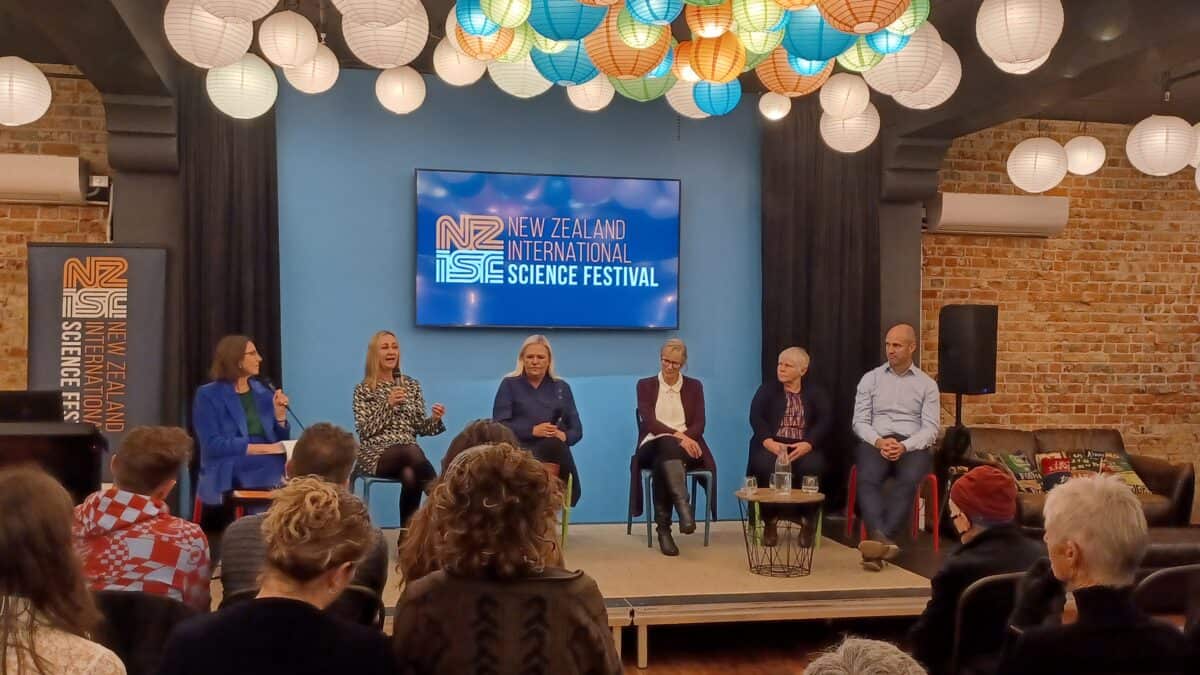National Science Challenges showcased at New Zealand International Science Festival
24 July 2023
After its mid-winter carnival of light, Dunedin’s dark winter months were illuminated for a second time by lanterns at the Petridish venue, and rich kōrero between scientists and members of the public at the 2023 New Zealand International Science Festival.
Research from the eleven National Science Challenges featured in panel discussions over four evenings from 4-7 July 2023, underscoring how scientific evidence can make important contributions to many aspects of life in Aotearoa New Zealand.

Healthier Lives participated in three of the panels which focussed on improving health and wellbeing across the lifecourse, making our cities more liveable, and feeding our population sustainably.
Professor Peter Crampton moderated the Healthier Kiwis panel which featured wide ranging discussion with researchers from three health and wellbeing NSCs, as well as Science for Technological Innovation.
Healthier Lives Deputy Director Professor Parry Guilford highlighted the potential for precision medicine to improve cancer care to such an extent that it could be managed in future as a chronic condition rather than a terminal illness. His own research on ctDNA technology holds great promise for improving the sensitivity of cancer monitoring and taking it closer to where people live.

Former Dunedin mayor Aaron Hawkins moderated the Liveable Cities panel, an evening of lively interaction between the capacity audience and scientists from five NSCs. The researchers proposed a range of evidence-based measures to make our cities more liveable such as planting more trees to enhance mental health, which would also act as sponges during flooding. The ideas proposed would not only improve the way we live now but would also future-proof cities against some of the impacts of climate change.
Healthier Lives Principal Investigator Professor Simon Kingham presented compelling evidence on why 30km per hour is the ideal speed limit in cities to reduce road deaths, keep traffic flowing, reduce harmful emissions, and enable the serendipity of “bumping spaces” where people naturally interact with other, helping to strenghten our bonds of social connection.
The big question on the night was ‘given the evidence that many of the proposed measures work, how do we overcome resistance to change and make them happen?’
Journalist Niki Bezzant moderated the Feeding Aotearoa panel with researchers from five NSCs and another packed audience. This panel examined how food production systems and urban food environments need to change so that all New Zealanders can eat well and healthily, while preserving our natural environment.

Healthier Lives Deputy Director Professor Cliona Ni Mhurchu made the case that access to affordable healthy food is a basic human right. Other panellists asked why some New Zealanders are hungry and poorly nourished while New Zealand exports the vast bulk of the food it produces.
The complex interactions between food production systems, the economy, land and ocean environments, and our health were explored in depth, leading to a call the following day from six NSCs for the Government to develop a national food strategy for Aotearoa New Zealand.
The fourth panel, Enabling Kaitiakitanga, focussed on new ways of undertaking research within NSCs to enable Māori to enact kaitiakitanga. There wasn’t space for Healthier Lives to participate but kaitiakitanga (conserving and nurturing) is as relevant and important in health as in other spheres of life. Katharina Ruckstuhl moderated this panel with scientists from five NSCs.
Across all four evenings, there was no shortage of questions from audience members about how science can inform the way we live. Recordings of these sessions will be available in the coming months.


